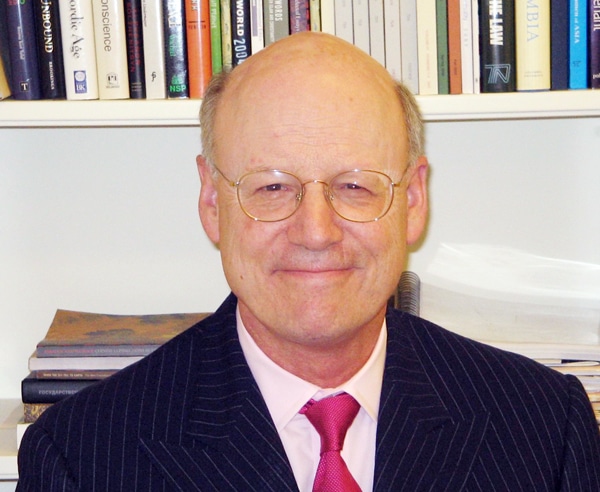Experiences with Nature, the Origins of the Earth Charter, and Reflections about Some Earth Charter Principles

Who is Steven Rockefeller?
Steven Rockefeller is professor emeritus of religion at Middlebury College, where he also served as dean of the College. Steven Rockefeller, a member of the Earth Charter Commission, chaired the Earth Charter Drafting Committee from 1996 to 2000 and was the first Chair of the Earth Charter International Council. He has a Ph.D. in philosophy of religion from Columbia University. Much of his research and writing has focused on global ethics, sustainable development, and the interrelation of democracy, ecology, and spirituality. Professor Rockefeller is the author of John Dewey: Religious Faith and Democratic Humanism (Columbia, 1991) and the co-editor of two books of essays, The Christ and the Bodhisattva (SUNY, 1987) and Spirit and Nature: Why the Environment is a Religious Issue (Beacon, 1992).
EPISODE 1/2
Personal Life Stories and Experiences with Nature
Quick Overview
Professor Steven Rockefeller narrates how the family he grew up in fostered his interest in international affairs, religions, and conservation. He also gives an account of the impactful experiences he had with nature and his special interest in birds. He reflects on how helpful it was for his work with the drafting process of the Earth Charter, the fact that he spent over 30 years studying philosophy and world religion. Over the years, he increasingly realized that the spiritual life involves the quality of one’s relationship with oneself, with other persons, with the larger world of nature, and with the great mystery of the universe. He explains what faith means for him and reflects on his experience during the Earth Charter drafting process, which involved listening intently to people from various cultures and fields of knowledge and trying to understand different perspectives. He shares that he became involved in the Earth Charter Initiative due to his interest in ethics and spiritual values.
Professor Rockefeller also talks about the origins of the Earth Charter; the World Charter for Nature and its focus on respect for nature; and the Brundtland Commission Report and its emphasis on the moral responsibility to future generations. He shares how IUCN’s second version of the World Conservation Strategy stands as a pioneer document addressing environmental ethics from an Earth perspective. The Earth Charter, according to Professor Rockefeller, presents an integrated social, economic, environmental, ethical, and spiritual vision concisely formulated for humanity.
Questions and Themes Addressed in this Episode
- Can you share with us some reflections on your journey to becoming interested in nature, spirituality, international affairs, and the Earth Charter?
- Can you share some examples of key life stories or experiences you had in nature?
- How did you enter the realm of world religions, philosophy, and ethics?
- What is faith for you?
- Did your involvement with the Earth Charter change your worldview in any way?
- A few points on the origins of the Earth Charter?
- What is the importance of the World Charter for Nature?
- What are key ideas in The Brundtland Commission report and the IUCN World Conservation Strategy: “Caring for the Earth: A Strategy for Sustainable Living.”
- What is The Earth Charter’s added value?
Listen to this Episode
Duration: 54 min.
EPISODE 2/2
Reflections on Some Earth Charter Principles
Quick Overview
Every word in the Earth Charter has been carefully chosen upon extensive consultation and intensive deliberation. Professor Rockefeller shares a few stories behind some Earth Charter ideas and principles, such as “Earth” rather than “the Earth,” “the earth,” or “Nature,” and “equitable distribution of wealth” rather than “redistribution of wealth,” among others. He also relates the argument among different groups over the word “compassion,” and over the concept of “intrinsic value,” and how they eventually reached a consensus, sometimes just because of a flash of inspiration. Exceptionally, the case of reproductive health just demonstrates that the Earth Charter does not have to take a position on every single matter for a greater consensus to be built. He reflects on the concept of reverence for life, emphasized by Albert Schweitzer, and how it is weaved in the Earth Charter. He reflects on why the concepts of peace and nonviolence were part of the Earth Charter. Professor Rockefeller explains why the Earth Charter is really about the right relationships and how principle 16f summarizes it all.
Themes Addressed in this Episode
- “Mother Earth’s” language and how the Earth Charter refers to our planet.
- The drafting of the principle on compassion.
- On the “intrinsic value” of all living beings.
- Reverence for the mystery of being.
- Albert Schweitzer and the “Reverence for Life.”
- Reproductive health and the sensitive issues around it…
- The articulation of peace and nonviolence in the Earth Charter..
- “…one Earth community, one common destiny…”
Listen to this Episode:
Duration: 50 min.


